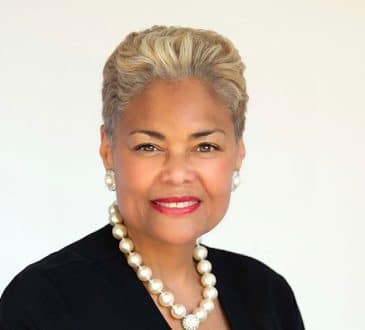How to move onto charity and non-profit boards

Many senior executives in the private sector would like to take up a trusteeship or other volunteer roles in the charity and non-profit sectors as a way of enhancing their skills or giving something back to society.
A survey last year by Pilotlight, a charity that connects the business and charitable world, revealed that 90 per cent of business leaders said that volunteering their time and skills to charity made them happier and improved their business skills. The findings also showed that although 8 in 10 senior executives got involved with charities to ‘give something back’, nearly two-thirds (62%) found it increased their own job satisfaction.
The chance to volunteer as a trustee is an opportunity to do something different, to learn new skills and work alongside people from different backgrounds and cultures with new perspectives. It’s also the chance for executives to bring greater commercial acumen onto charity boards.
Demand for executives with professional skills on charity boards has never been higher.
Currently, there are 161,000 registered charities in the UK, with 800,000 staff and over 14 million volunteers and yet an estimated one in five has a trustee vacancy on their boards. Many charities need trustees with leadership and professional skills.
There is a huge range of charities working in the UK and internationally, so there is something to suit everyone’s interests and passions. Charity boards benefit enormously from professional people who bring a broad range of skills and business people who become trustees can gain valuable skills at the same time – it’s a win-win.
However, there can be more to a trusteeship than people think and before taking on a trusteeship people need to do their research thoroughly on what the role entails, especially the legal responsibilities.
Last year, we co-authored a guide for new trustees called, “Bridging the Gap: moving onto non-profit boards,” with Denise Fellows, Director of Consultancy and Talent Development at the Centre for Charity Effectiveness, Cass Business School.
The guide is essential reading for those working in the private sector, who would like to take up a trusteeship or other volunteer roles in the charity and non-profit sector and formed part of the legacy support materials for the Lord Mayor’s Charity Leadership Programme 2014.
The guide covers four main areas: The Sector – context, composition and character; Governance; Culture and How to become a trustee.
In the guide Denise Fellows points out that, “the culture of the non-profit sector is different from that of the private sector. It is not better or worse, just different, and it is helpful to understand how to navigate the disparities.”
Many people from the private sector approach opportunities to serve in the non-profit sector with good intentions and with the expectation that their significant experience and wisdom will be gratefully accepted.
As already highlighted people often talk in terms of wanting ‘to give something back’. It can however, be a shock to find that their sincere intentions are perceived as patronising and are rejected or, worse, that they are treated as some kind of outcast with no real understanding of what is happening.
The guide comprises a series of chapters that aim to provide an overview of the sector, the differences that people may find and how to become successfully engaged. The chapter on how to become a trustee looks at the most important things to consider before taking on a trusteeship.
One of the first things to consider is why you want to become a trustee. Research has shown that the reasons are often mixed, with one survey of potential and existing trustees suggesting that there are often mixed motives, notably 30 per cent keen to learn new skills 30 per cent passionate about a particular cause. Making sure you understand your own motivations, as well as the role of trustee is crucial.
One mistake people sometimes make is to leave their professional skills at the door of the boardroom.
If a person has been fortunate enough to have been trained in accountancy, for example, and has had many years of investment in that training, it would be a great pity for that individual to not use their expertise and to sit on the finance committee or become the honorary treasurer.
If people are seriously exploring trustee opportunities then it is crucial they understand all the implications so they are as prepared as possible, and doing it for all the right reasons.
If someone decides a trusteeship is for them the guide also has useful pointers on what skills are needed, where to find trustee roles and the importance of doing due diligence before accepting a role, as well as what to expect in the early days after joining. To download the free guide visit.
—————————–
Written by Ian Joseph, Chief Executive, Trustees Unlimited, a trustee recruitment company set up by Russam GMS, NCVO and Bates Wells Braithwaite has co-authored a guide, “Bridging the Gap: moving onto non-profit boards” with Denise Fellows, Director of Consultancy and Talent Development at the Centre for Charity Effectiveness, Cass Business School which provides advice for people working in the private sector who would like to take up a trusteeship or other volunteer roles in the charity and non-profit sector. It covers the skills and experience people need and how to get on irrespective of your sector background. It also provides advice for charities on how to best to use the skills and experience of people, irrespective of their sector background.
Bring the best of the CEOWORLD magazine's global journalism to audiences in the United States and around the world. - Add CEOWORLD magazine to your Google News feed.
Follow CEOWORLD magazine headlines on: Google News, LinkedIn, Twitter, and Facebook.
Copyright 2025 The CEOWORLD magazine. All rights reserved. This material (and any extract from it) must not be copied, redistributed or placed on any website, without CEOWORLD magazine' prior written consent. For media queries, please contact: info@ceoworld.biz











